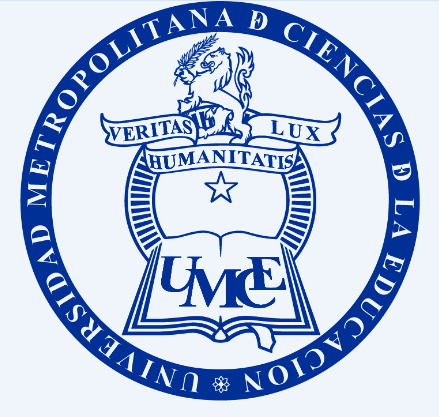Main Article Content
Oct 19, 2022
Abstract
Not only the development of the competences in the so called priority High schools is,for many people, an impossible enterprise, even more, only the fact of conceptualizing them in educational codes is an absurdity, something improper. Arguing from the exemption logic, the desire and the power concéntrate to forbid (Foucault 2002, p.3). It is established, this way, in forbidden word, valid, ofcourse, for other fields, or perhaps for all other fields, except for the educational one.
In the first part, we will decode the concept, will deactivate it and will put it in leaming codes, not without stating an oddness, the first absurdity of the contemporary world, a rupture o f the rational thought and determinist, since, rarely, the Chilean society has come to such a widespread consensus. No matter what is epistemológica! the approach with that anyone looks and the ideological intention that faces the
analysis, they all come to the same conclusión: the Chilean educational system needs a change, where there does not seem to be consensus, is in defining the most appropriate change and who or whom are the carrying subjects of this change.
Then we will travel towards the real world, we will face indeterminate and uncertain situations, situations of small causes that produce huge effects, situations where the accuracy leaves his privilege place and leaves place to the possibility and to the probabilistic thought, situations where the truth is not absolute but hypothetical, situations where the hands of the mysterious dock of the rabbit tum
indiscriminately both towards the right and towards the left. As any unknown world, it will provoke fears, uncertainties and challenges to us.
Like any expedition, we need to develop activities aim to prepare us to understand the real world into which we will penétrate. The understanding of this world is the real motive of our expedition. Also, this is a human activity, because of this, our object loses his naturalness and appears like object of collective and social experience, (Vygostki 1995, p.35). We declare that our motivation is to decipher the code of teaching competences necessary for the exercise of the education in a world in constant change and transformation.
Appears here, the first social división of work, since, undoubtedly, this is not an exclusive responsibility of the teaching subject, it is a systemic responsibility, where the different instances of the educational process conjúgate, like the State policies and its different instances of control, other actors like parents and tutors, students, managing teachers and financial supporters. Our actions belong to the effort to
specify our practical goals on the subject of teaching professional development and to propose to focus on the competences that are unavoidable for the professional exercise in an uncertain world and in constant change and evolution.
Welcome to our adventure, we will travel to the real world: or of the impossible world? Up to where do you want to come? Here is a proposal
References
Arancibia, Violeta y otros. Manual de Psicología Educacional. Universidad Católica de Chile. 2000.
Barreto. Gaspar y otros. Necesidad y utilidad de la categoría “competencia” en Ciencias Pedagógicas. La Habana: universidad de Camagüey: Revista Iberoamericana de Educación (ISSN: 1681-5653).
Organización de Estados Iberoamericanos para la Educación, la Ciencia y la Cultura ( O E I ), 2008.
Carroll, Lewis. Alicia en el país de las maravillas.
Coll. Cesar. Algunos Desafíos de la Educación básica en el Umbral del nuevo milenio, Citado en “Aprendizaje, enseñanza y desarrollo” de Dr. José Zilberstein Toru ncha
Foucault, Michel. El orden del discurso. Lima: Instituto de Estudios Peruanos, Mayo de 2002.
Llórente, Cortés, María Ángeles. Rendimiento escolar o la trampa del elef ante. Valencia, Centro de Perfeccionamiento Cervantes de Buñol, 2005.
Molina, Víctor. Educación, evolución e individuación. Aproximaciones a una indagación sobre los sentidos de la educación. Revista PRELAC, publicación de la Oficina Regional de Educación de la UNESCO para América Latina y el Caribe: OREALC/UNESCO Santiago, 2006.
Molina, Víctor. Reivindicación de una antigua idea a partir de una nueva problemática. El desarrollo de las competencias y la relación aprendizaje-desarrollo como momento esencial de los procesos educativos. (Versión ampliada del texto elaborado para una conferencia en la facultad de filosofía y letras de la universidad nacional de Cuyo, Argentina, a ser publicado en septiembre de 2006 por dicha universidad).
Morín, Edgard. Los siete saberes de la Educación del Futuro. Ediciones UNESCO. 2000.
Perrenoud, Philippe. Diez nuevas competencias para enseñar. Barcelona: Graó, 2004.
Sander, Benno. Gestión Educativa en América Latina. Buenos Aires: Troquel, 1996.
Schón, Donald A. La formación de profesionales ref lexivos. Madrid: Paidós, 1987.
Vygostki, Lev. Pensamiento y Lenguaje. Barcelona: Paidós, 1986. Waddington, C.H. El animal humano. Edinburgh: 1961.




